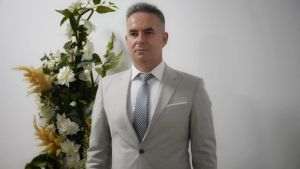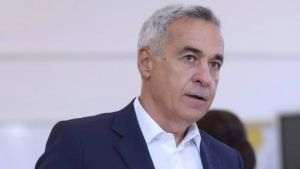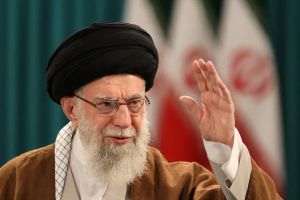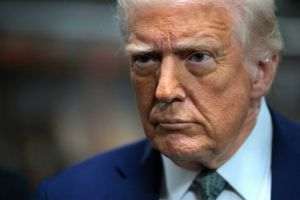The need for a real partnership between political decision-makers and civil society, between governments, parliaments and citizens, was the main topic of debate at the 12th edition of the Global Forum of Modern Direct Democracy, an event that took place last week, during four days (May 15-18), in Bucharest.
During the Forum organized in our country, I practically attended two events: one in which the political class was involved and which held its work on the first day at the Parliament Palace and on the following three days in the Constantin Tănase Magazine Theater hall and one intended strictly for over 500 participants from 60 countries of the world which took place in the classroom and seminar rooms of the Faculty of Sociology of the University of Bucharest, and even on the green space near the higher education unit.
While politicians beat each other with bombastic statements regarding the role of citizens in society, the importance of their vote and the importance of democracy and the rule of law, through the lecture halls of the Faculty of Sociology European citizens, but also from Cuba, the Philippines, Sudan, South Africa, Brazil, Chile, Taiwan, Portugal, Mexico and other more distant states of the world wanted to know what the foundations of real democracy are, what it brings to the citizens, what the rule of law consists of and how they can oppose the slippages of the authorities to ensure compliance total human rights and freedoms. They attended 62 debate sessions in which they discussed not only democracy, the rule of law, the importance of voting, civil rights and freedoms, the involvement of young people in decision-making, but also the current global geopolitical situation, economic development, on combating climate change, green transition and digital transition.
University professor Ivan Vejvoda, head of the Europe's Futures Program at the Institute of Human Sciences (IWM) in Vienna, said on the first day of the event in Bucharest: "There is no democracy without a safe home. Therefore, we must never forget that we must fight for democracy and freedom, and here I mean a continuous fight".
Clara Egger, a professor at the Erasmus University in the Netherlands claims that "direct democracy allows people who do not trust each other to collectively decide on their future".
• Greater involvement of citizens in decision-making, a constant request at the forum in Bucharest
The role of citizens must increase in modern democracy, said Marjan Ehsassi, Executive Director for Europe of the Fund for Innovation in Democracy, who stated: "Citizens want to have a meaningful role and their voice to be heard and taken into account by the factor political. That's why I believe that governments must be partners and support this approach".
On the same side of the barricade is Daniela Vancic, manager of the European Program within Democracy International, who claims that it is necessary for the European Citizens' Initiative to take over the Swiss model of direct democracy, with several levels of approval and adjustment, the only one - in his lordship's opinion - to give strength to the ideas expressed within the Initiative so that they are implemented by the European Commission and the European Parliament.
As for political decision-makers, Caroline Vernaillen, in charge of communication from the organization Democracy International, drew attention to autocracies that say they support democracy, but do not, because they fear the citizens, their power when they cooperate.
Regarding this aspect, Mihail Sirkeli, executive director of Piligrim-Demo pointed out: "Democracy should be more defensive, so that people who try to undermine democracy and democratic institutions do not succeed."
The French political scientist Raul Magni Berton, professor at the Catholic University of Lille and the Faculty of Political Sciences of the University of Grenoble pointed out: "The main challenge is the conceptualization of direct democracy due to its many instruments which, although lacking consensus, are the most democratic."
Most of the participants in the 12th edition of the Global Forum of Modern Direct Democracy, a forum that was established 15 years ago, stated that it is necessary for the representatives of the political class, of the world's decision-makers, of the decision-makers at the regional level, national and local to also take into account what the citizens want, whom they consult periodically on certain important topics on the agenda of the day.
• Politicians, concerned with PNRR and local and parliamentary elections
The political class from Bucharest was preoccupied during the days of the forum to talk about rebuilding trust between citizens and the decision-makers within the state, and this was mainly discussed during the two debates organized at the Constantin Tănase Magazine Theatre, with a among the Romanian candidates in the European Parliament and local elections.
During the debate for the European Parliament elections, Dragoş Pîslaru, co-president of REPER, stated that the country project we have is the European Union and European issues are on the daily agenda of Romanian citizens. Although they tried to gain the trust of the participants in the debate, Mr. Pîslaru and the other candidates for the European Parliament - Violeta Alexandru (United Right Alliance - USR+FD+PMP), Roxana Mînazatu (PSD-PNL alliance), independents Vlad Gheorghe and Nicu Ştefănuţă - they agreed on how to implement the National Recovery and Resilience Plan, which the representatives of the political opposition say is 18 months late, but which the representative of the PSD-PNL governing coalition said was badly written, because it includes in it reforms that cannot be implemented, such as the reduction of the tax threshold for micro-enterprises and the elimination of some tax facilities for the construction, IT and agriculture sectors.
However, all the candidates present at the debate conveyed to the forum participants that the PNRR is the only chance for reform and development of our country, to which they also added the cohesion policy funds from the European multiannual financial framework 2021-2027.
Mădălina Mihalache, head of the European Parliament Office in Romania, said that "the European elections are the largest multinational democratic exercise in the world", especially since from the 2019 European Parliament elections until now, Europe has been marked by several crises, which revealed the need for solutions at the European level.
Mădălina Mihalache stated: "Without citizen involvement, the democratic power of the European Parliament diminishes. In the context of these recent challenges at EU level, the latest Eurobarometer showed that 73% of European citizens recognize the impact that the Union has on their lives. I think that this awareness is reflected in the desire to participate in the European elections, 71% of respondents expressed their intention to vote, which is 10 percent more than in the last elections".
Regarding the debate with the candidates in the local elections, Radu Mihaiu, USR, stated that, unfortunately, in our country the number of citizens with the right to vote who participate in the elections is much lower than in the consolidated democracies of central and western Europe and stated that the elections are the most important decision-making moment because then the representatives of the citizens, of the civil society, decide.
Radu Mihaiu, mayor of Sector 2 of the Bucharest municipality, said: "Citizens appoint their representatives to think through the decisions and implement them. From this point of view, I would say that, unfortunately, in Romania, fewer and fewer people do this exercise and, unfortunately, the turnout in the elections is quite low. On the other hand, there are many civic groups, many non-governmental organizations, which participate in decision-making, including in the debates organized by the public authority, including in proposing solutions (...). There are projects that started from civil society and have been implemented or will be implemented. They are project tweaks that started from people's feedback and there is an involvement. So, there is an important part of society that gets involved, which, of course, can be taken into account, and we can adjust our policies according to this active part of society, but there is also a part of society that does not get very involved, unfortunately, and we must make efforts to involve them more than before because in Romania, far fewer people appear in elections than in other consolidated democracies".
For his part, Ion Dogalniuc, the mayor of Colibaşi, Cahul district, Republic of Moldova, stated: "Citizens' involvement in everything that means local government is essential for a true democracy (...). We have created different opportunities for citizens to get involved in the decision-making process, to know all the problems of the locality, to select those problems and priorities that they consider necessary at the first stage to be implemented and last but not least, to get involved in the process of solving the identified problems".
• Trust - the cornerstone of democracy
The Global Forum of Modern Direct Democracy concluded its twelfth edition with the adoption of a new declaration, which foregrounds the need to rebuild trust between citizens and decision-makers.
The text of the final declaration states: "We, the participants of the 2024 Global Forum for Modern Direct Democracy, gathered in Bucharest, Romania, from May 15-18, 2024, under the general theme "Trust: rebuilding the foundations for democratic resilience", declare the following: Trust is fundamental; we recognize trust as the cornerstone on which democracies stand. Trust in institutions, in the media and in each other is essential to the functioning of democracies. It is our duty to cultivate and strengthen this trust through active citizenship, transparent governance and sound democratic practices."
The cited document emphasizes the role that democracy plays in maintaining peace and resolving conflicts. The Bucharest Declaration of the Global Forum of Modern Direct Democracy states: "Democracy, with its mechanisms of participation and structures of inclusive governance plays a crucial role in preventing conflict and fostering sustainable peace. As we deliberate on the challenges facing the world today, including war, populism, climate change and pandemics, we reaffirm our commitment to use democratic tools to address these global crises and promote stability and prosperity for all."
In terms of European democracy, the document states that the institutions in Brussels must invest in inclusion and citizen participation, and that it is necessary for all European citizens with the right to vote to participate in the June 6-9 elections on the future composition of the European Parliament , which will decide the future structure of the European Commission.
"Initiatives such as the Conference on the Future of Europe and the European Citizens' Initiative are a good start to increase citizens' involvement and responsibility in shaping the future of Europe, but they need to be deepened", the statement from Bucharest states.
Forum participants also pledge to support independent media, combat disinformation, harness technological innovation and remain vigilant to strengthen democratic processes and enhance citizen engagement. They also state that the development of local direct democracies will lead to the priority approach by decision-makers to the needs and desires of citizens, and draw attention to the need for the authorities to involve as many young people as possible in the decision-making process and support their initiatives in order to develop a culture of civic engagement, which will lead to a more inclusive and representative democracy for future generations.
















































